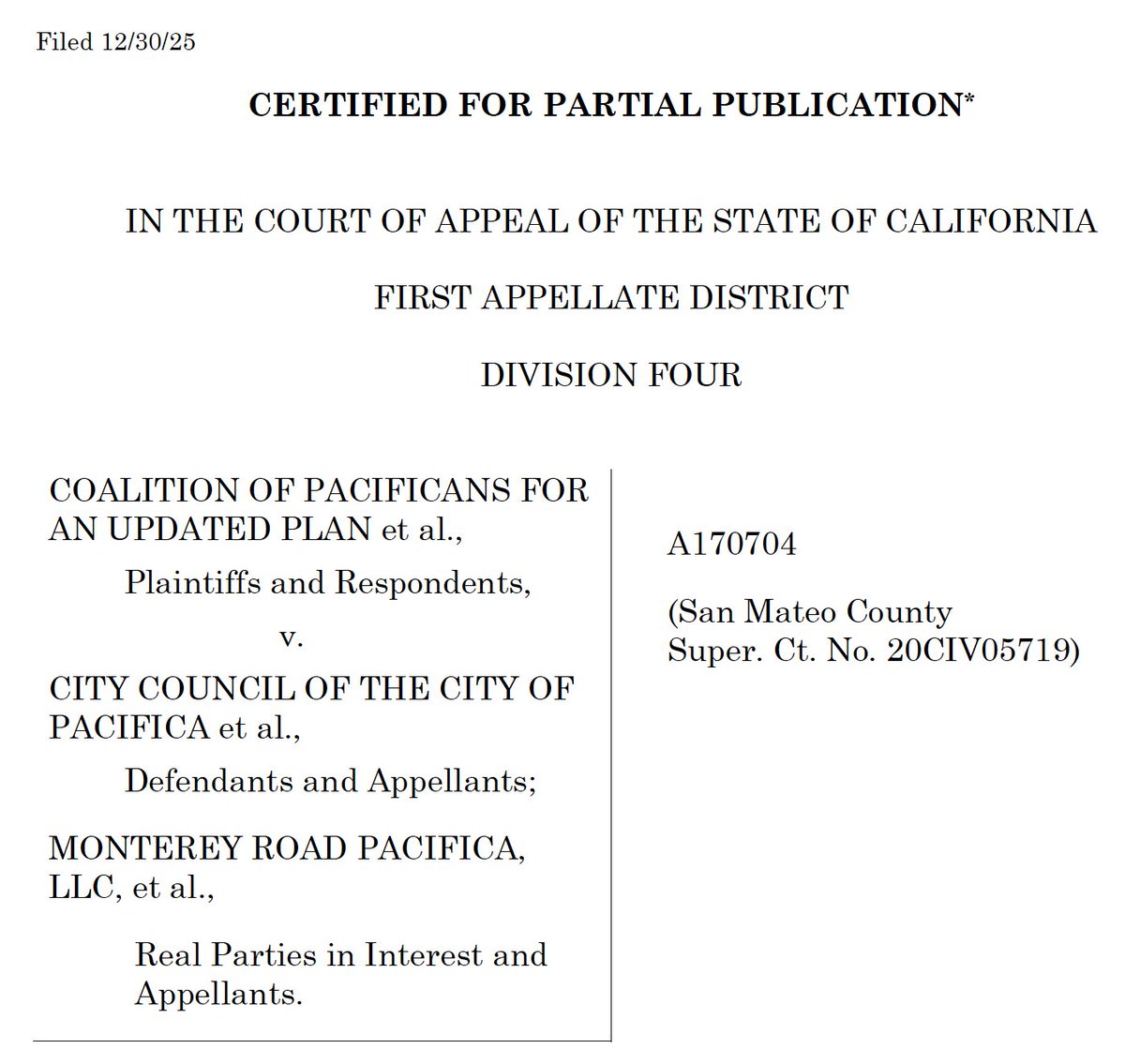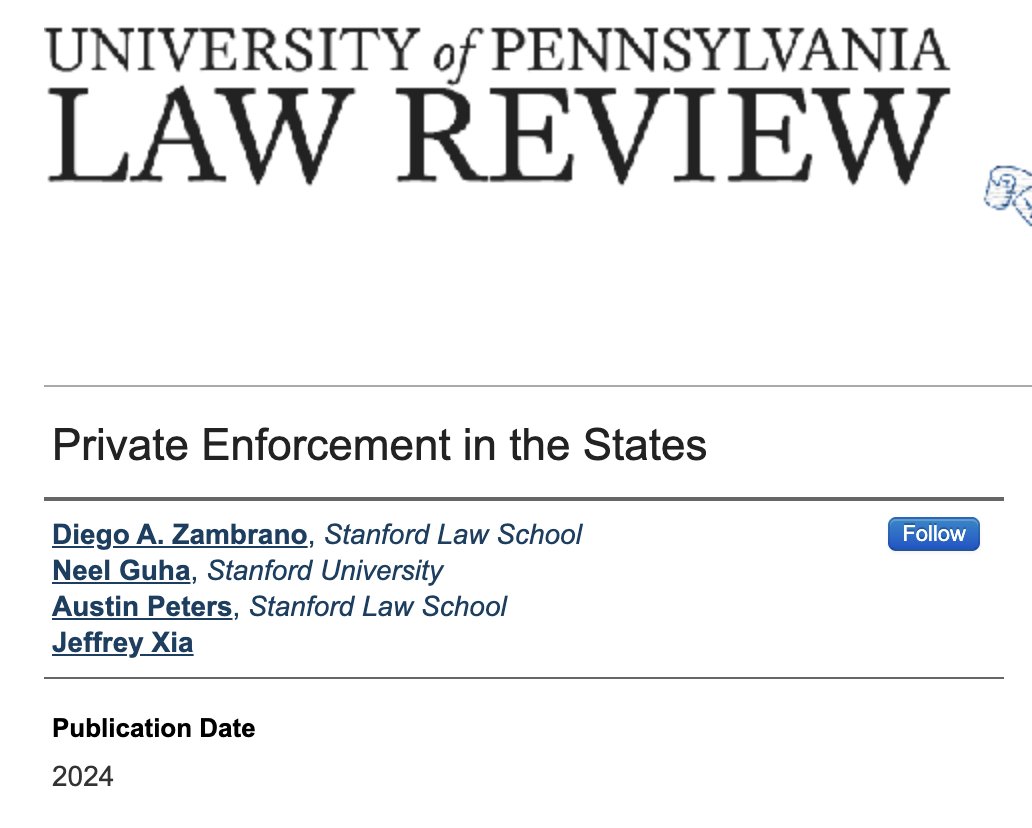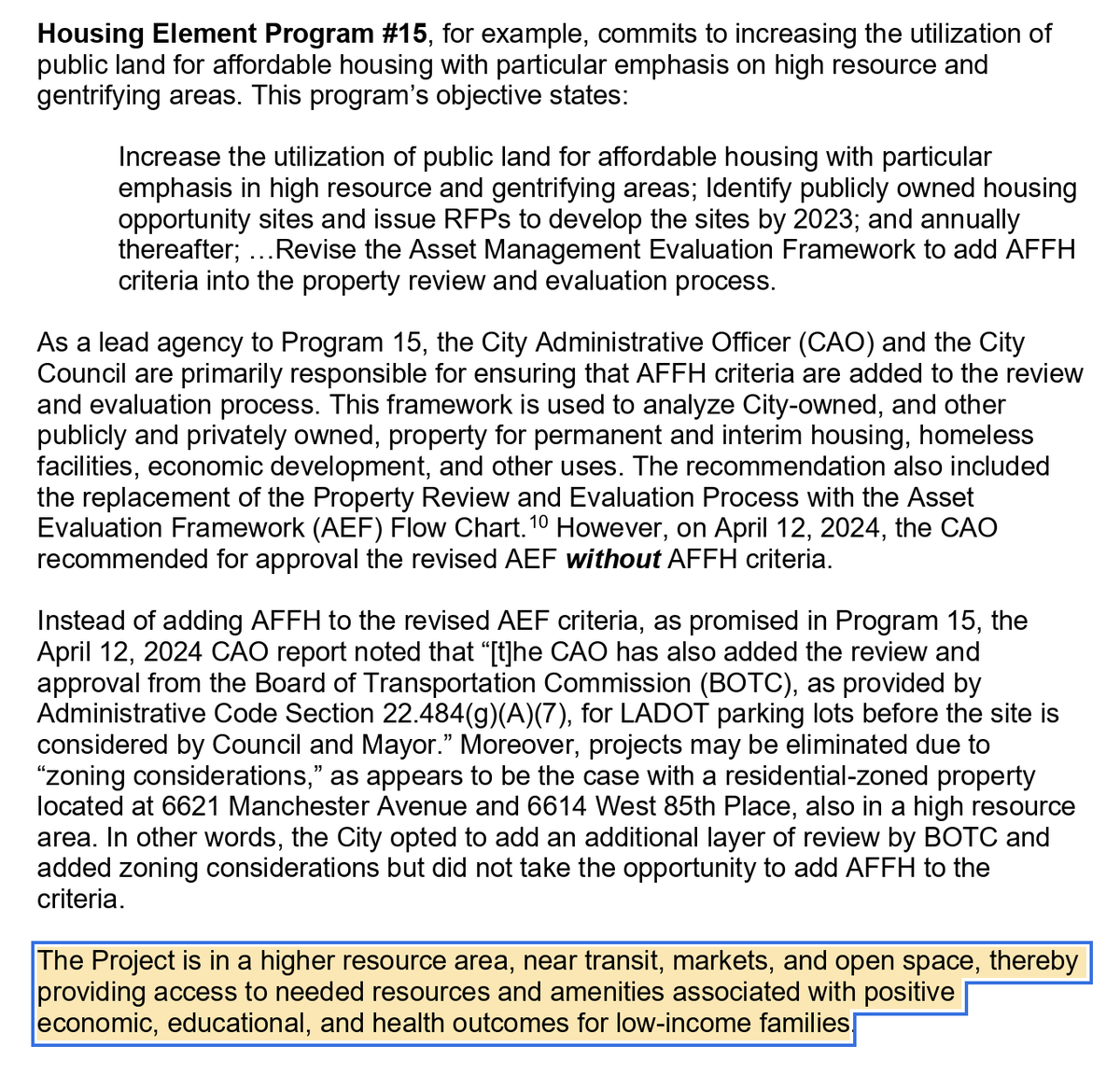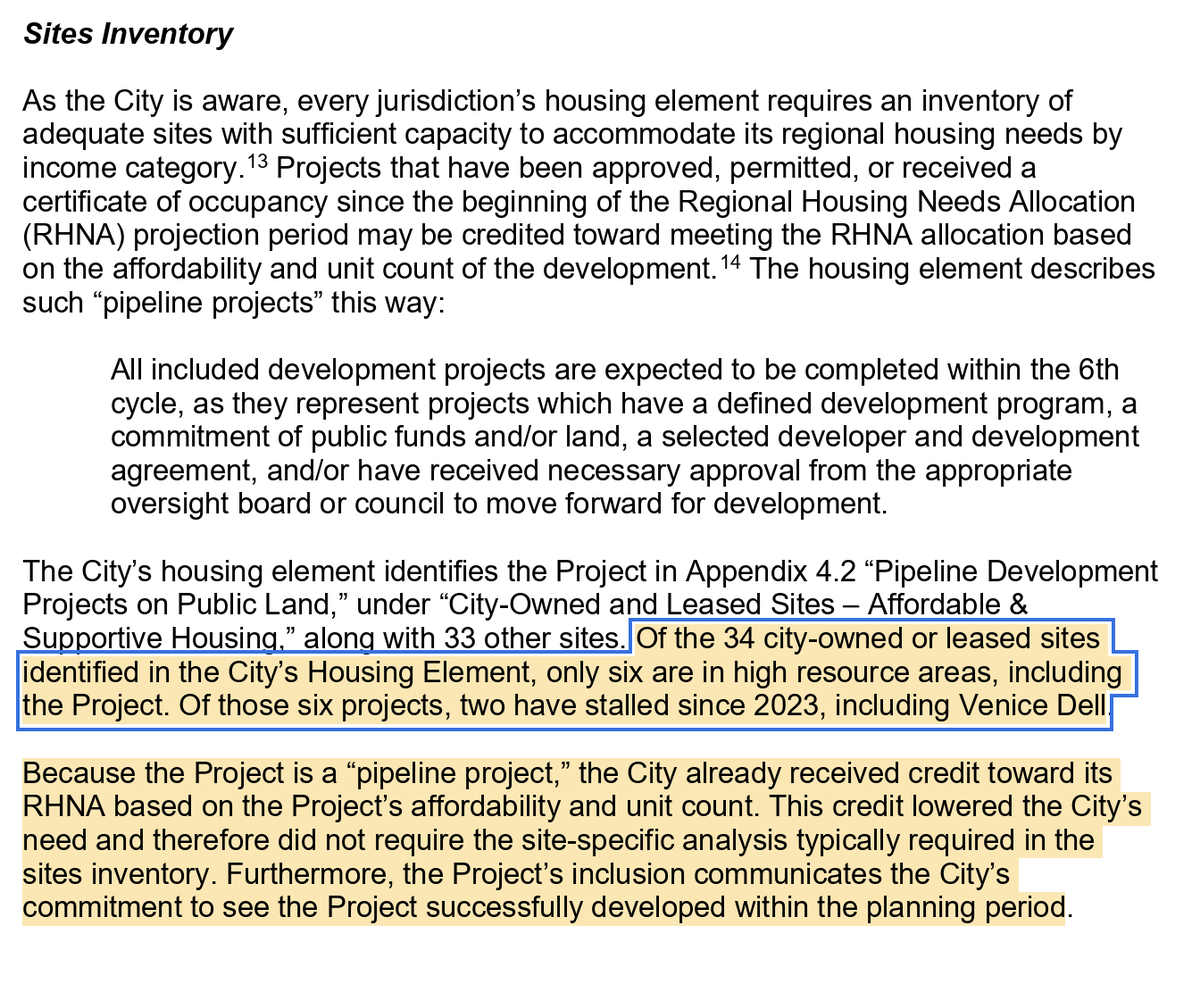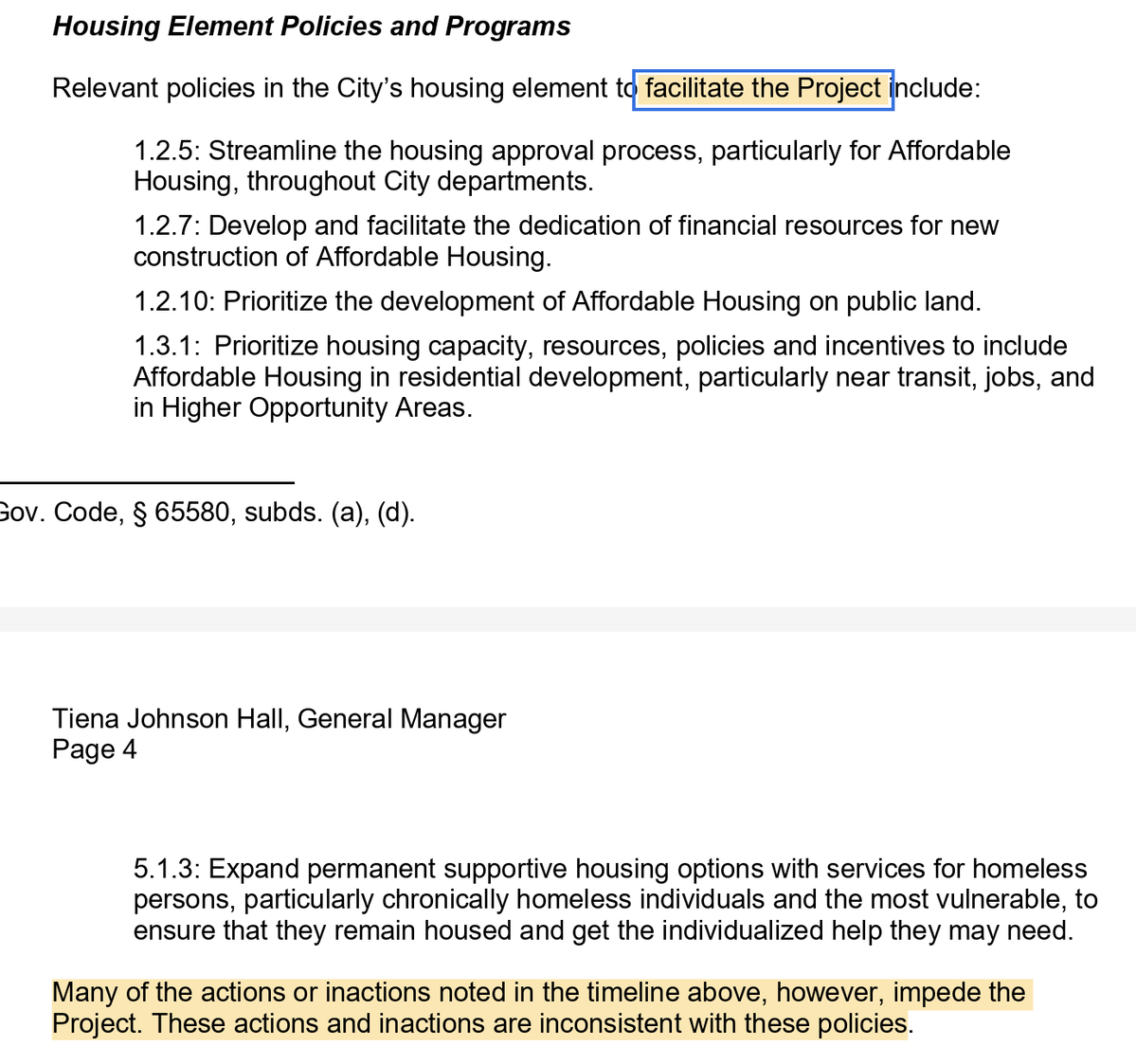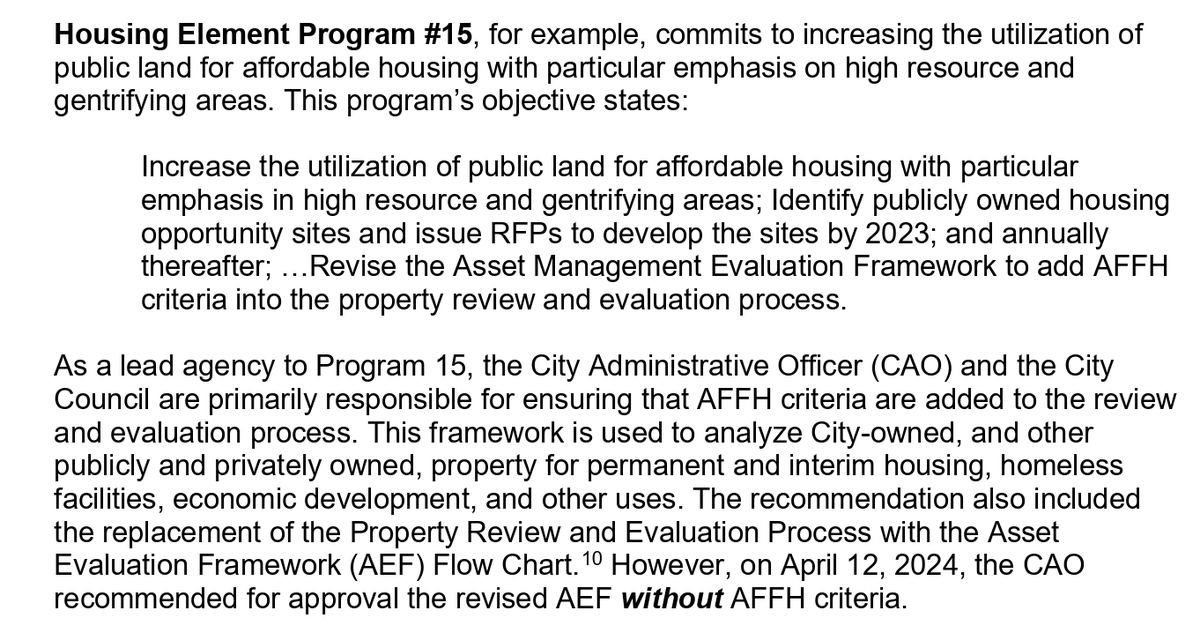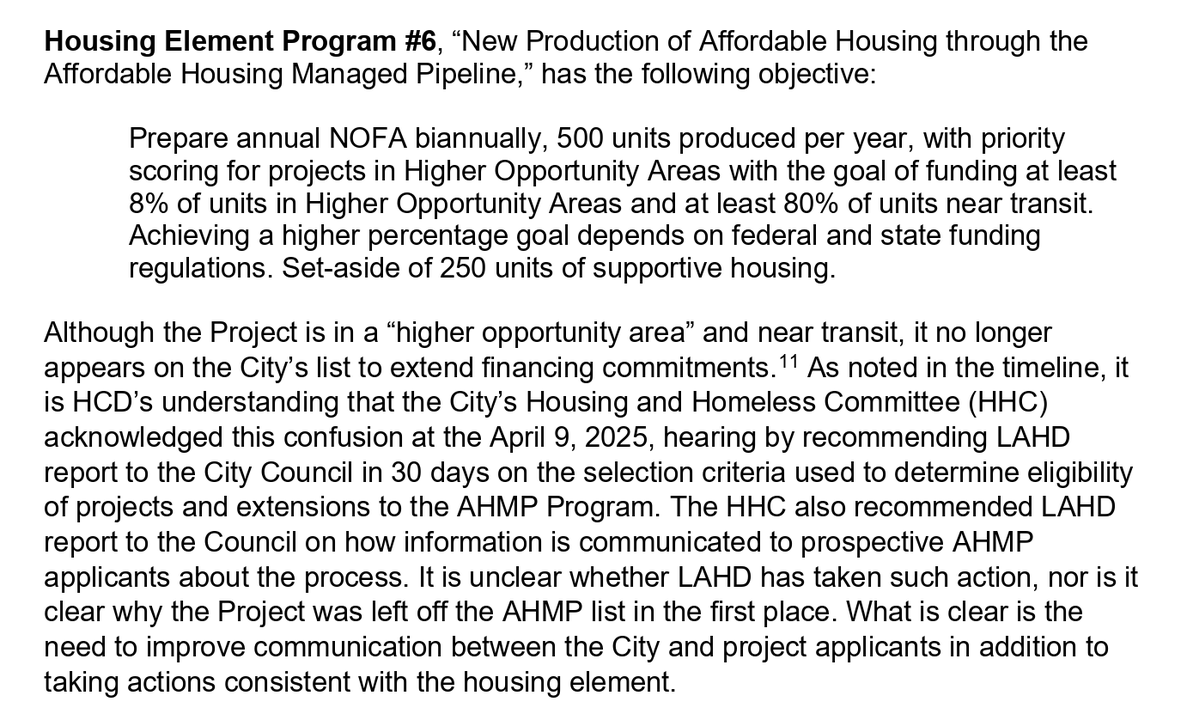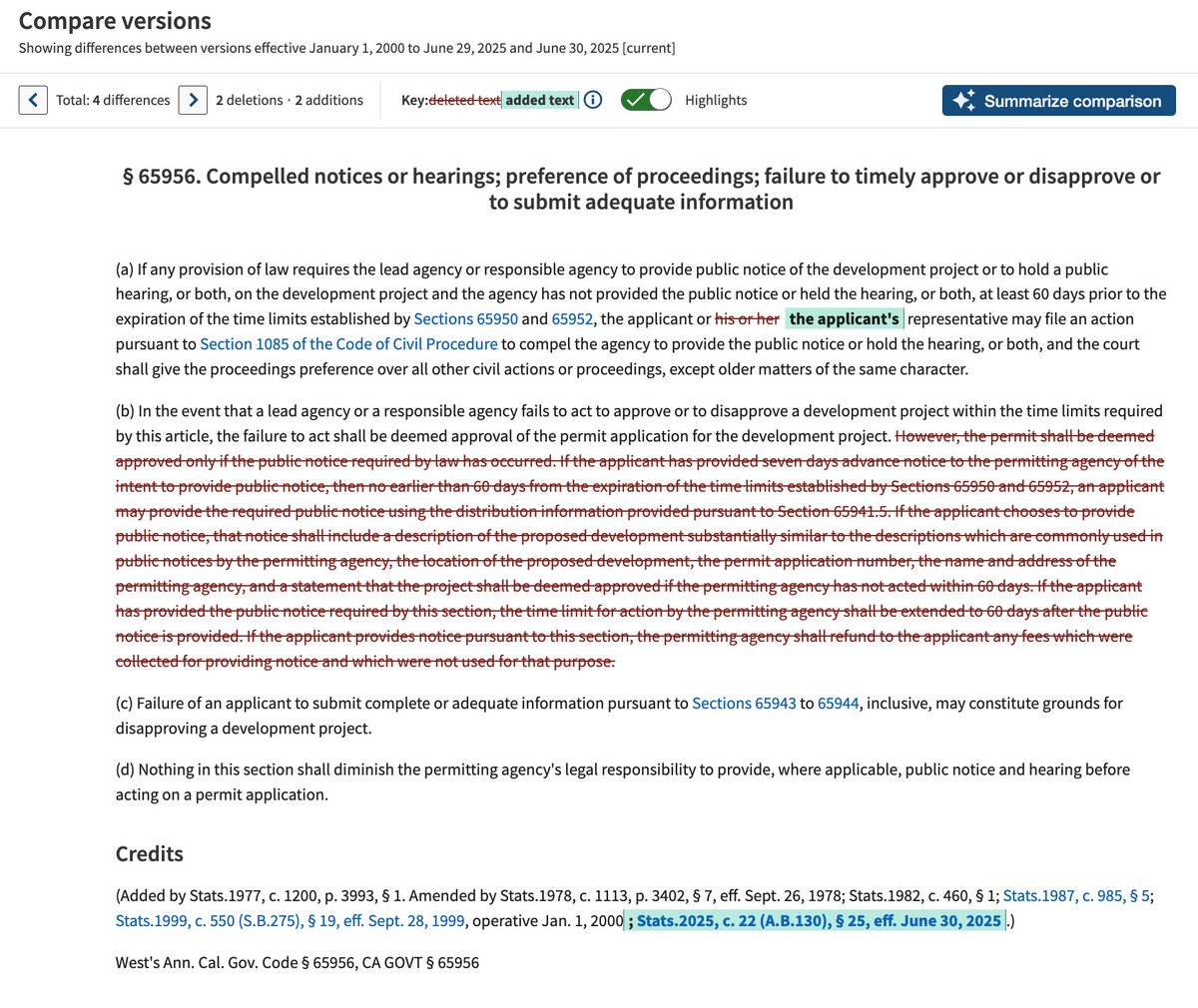BIG new decision from Court of Appeal on housing-element law.
@DRand2024 says mid-cycle builder's remedy projects are coming soon. S/t one small caveat, I agree!
The decision also has big implications for sites analysis. Is p(dev) approach now de facto required?
🧵/22
@DRand2024 says mid-cycle builder's remedy projects are coming soon. S/t one small caveat, I agree!
The decision also has big implications for sites analysis. Is p(dev) approach now de facto required?
🧵/22
https://twitter.com/DRand2024/status/1976710067954340125
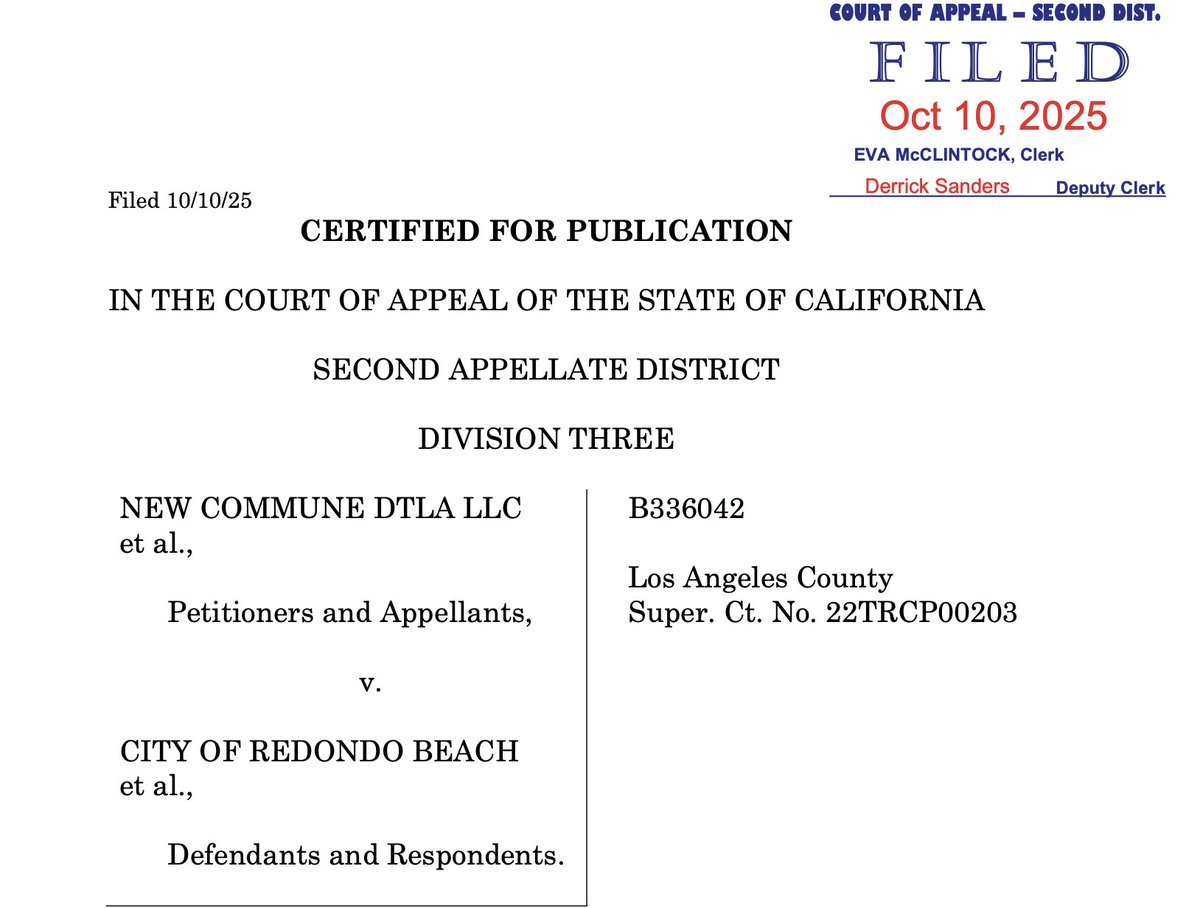
The court's first holding concerns the detailed statutory requirements for rezoning for "lower income" RHNA.
GC 65583.2(h) spells out minimum density requirements (16 or 20 du/acre) for sites that cities rezone to make up a "lower-income RHNA shortfall."
/2
GC 65583.2(h) spells out minimum density requirements (16 or 20 du/acre) for sites that cities rezone to make up a "lower-income RHNA shortfall."
/2
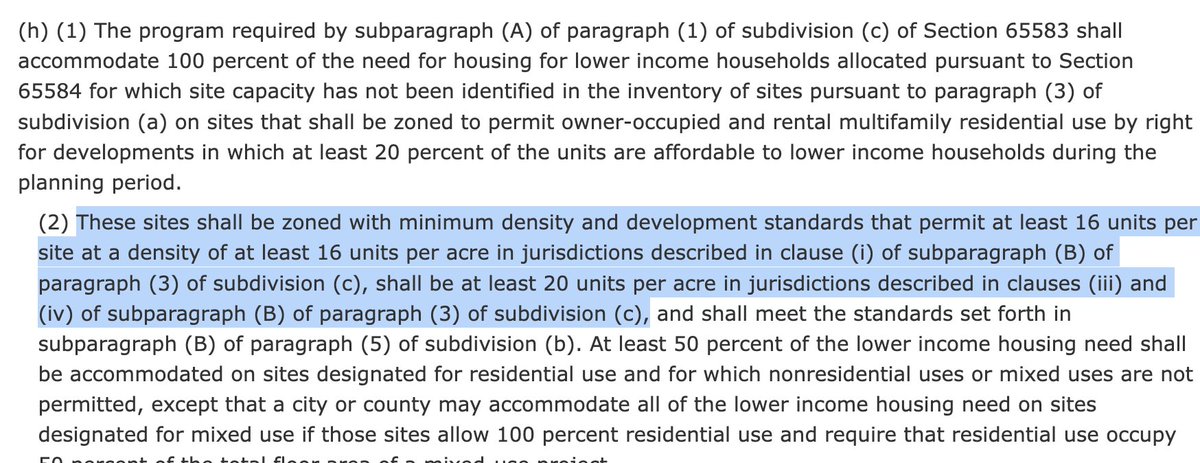
In Martinez v. Clovis, Court of Appeal held that an "overlay" zone violates these min-density requirements if residential use (at lower density) is allowed by base zoning.
/3
/3
https://x.com/CSElmendorf/status/1644809655447875584
Today's decision in New Commune v. Redondo Beach extends Martinez to, inter alia, prohibit use of overlay zones for lower-income RHNA on sites where base zoning allows industrial or commercial development.
/4
/4

It holds, first, that base zoning can't allow residential or commercial use b/c that's tantamount to allowing development at residential density = 0, contrary to the min density requirement of GC 65583.2(h).
I think this holding is wrong.
/5
I think this holding is wrong.
/5

It's wrong b/c 65583.2(h)(2) clearly authorizes cities to allow non-residential uses on some lower-income sites if 50% or more of lower-income RHNA is assigned to sites zones exclusively for residential use.
/6
/6

Next, court says that city's overlay zone can't be squared with "mixed-use exception" in 65583.2(h)(2), which allows cities to rely on mixed-use sites for 100% of lower-income RHNA if zoning requires that residential use "occupy 50 percent of the total floor area."
/7
/7

Court says that city's base-zoning allowance for industrial & commercial use means that there's no guarantee that residential use will comprise at least 50% of a project on the site.
I think this holding is probably correct.
/8
I think this holding is probably correct.
/8

But it also leads to hard questions!
Let's say there's a small, 100% commercial building on site to which city has allocated lower-income RHNA via an overlay for mixed-use projects (> 50% residential).
Owner wants to do repairs. Allowed?
/9
Let's say there's a small, 100% commercial building on site to which city has allocated lower-income RHNA via an overlay for mixed-use projects (> 50% residential).
Owner wants to do repairs. Allowed?
/9
Or prohibited, b/c the repairs are a "project" and projects are only allowed if they result in structures that are >= 50% residential by square footage?
I don't know and the opinion doesn't say.
/10
I don't know and the opinion doesn't say.
/10
The court's other big holding is about the new requirement that cities show that an existing use of a nonvacant site is "likely to be discontinued" during planning period.
This requirement applies if city relies on nonvacant sites for > 50% of lower-income RHNA.
/11
This requirement applies if city relies on nonvacant sites for > 50% of lower-income RHNA.
/11

Despite HCD's approval of this housing element, and despite statutory presumption that HCD's determination was correct, the court found that city improperly relied on a site w/ an existing grocery store.
City did not show that grocery use was "likely to be discontinued."
/12
City did not show that grocery use was "likely to be discontinued."
/12
And, under terms of the grocery store's lease, the grocery store had the right to block housing development on a parking lot which the property owner had told the city they wanted to develop for housing.
/13
/13

This holding looks fact-bound but it's a doozy.
There's no practical way for a city of any size to learn *all* the relevant lease terms & private covenants that govern uses of *all* the sites that are plausible candidates for redevelopment & that city needs for RHNA.
/14
There's no practical way for a city of any size to learn *all* the relevant lease terms & private covenants that govern uses of *all* the sites that are plausible candidates for redevelopment & that city needs for RHNA.
/14
The *only* practicable solution is to do what San Francisco agreed to do in its housing element: Discount sites' nominal capacity by a plausible estimate of their probability of development during the planning period.
(In lieu of site by site studies of existing leases.)
/15
(In lieu of site by site studies of existing leases.)
/15

The court didn't discuss the p(dev) alternative to site-by-site investigations, but I'm happy to report that it relied on the paper where I first proposed that approach (w / @elpaavo, @eric_biber & Moira O'Neill).
/16
/16

The court adopted a core argument of our paper, which is that AB 1397's new requirements for realism is sites analysis should be implemented with an focus on what the sites can realistically be expected *to yield* during the planning period.
/17


/17
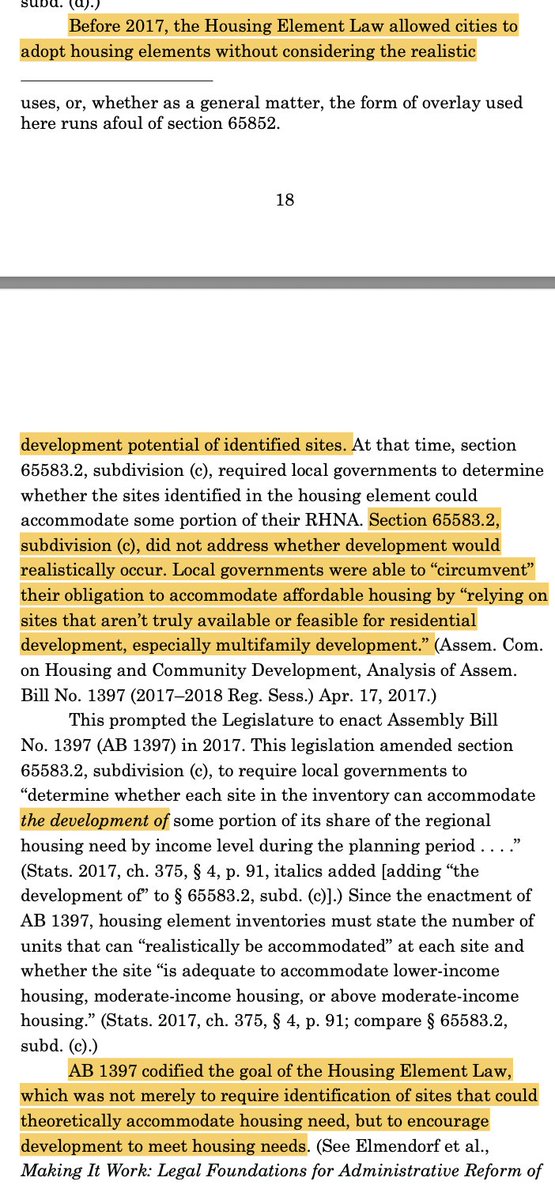


This a great news, and I think it will put pressure on HCD and the Legislature to come up with guidelines & safe harbors for the p(dev) approach.
/18
/18
Last thing: Are cities that used an overlay to do their housing-element rezoning automatically in the builder's remedy penalty box as of today?
No.
/19
No.
/19
As I read AB 1886 (2024), a city once found to be compliant by HCD or a court remains in compliance for purposes of the Builder's Remedy until HCD or a court revokes the finding of compliance.
/20
/20

So Redondo Beach is subject to the BR (b/c the Court of Appeal just announced that it is not in substantial compliance), but every other city with an "illegal" overlay zone is still in the clear--for now!
/21
/21
But cities should fix their overlay zones ASAP, b/c HCD may initiate the revocation process against many of them soon, and if HCD doesn't act quickly, YIMBY groups are sure to sue.
/end
/end
@threadreaderapp unroll
• • •
Missing some Tweet in this thread? You can try to
force a refresh


